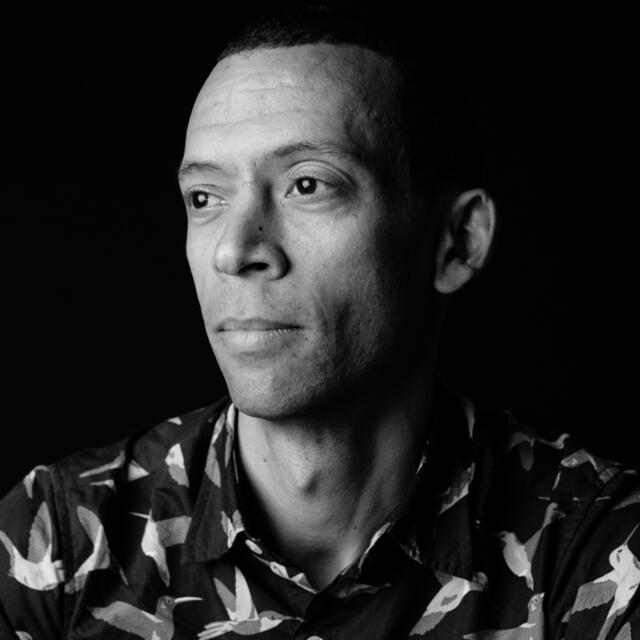
Stranger Than Fiction

“Fiction is even more subversive than nonfiction”

In 2007, Mahmoud Ahmadinejad, then-president of the Islamic Republic of Iran, spoke at a Columbia World Leaders Forum on campus. In a controversial talk moderated by SIPA’s acting dean at the time, John Coatsworth, Ahmadinejad famously declared that in Iran, “we don't have homosexuals, like in your country.”
Ahmadinejad’s comments, which made international headlines, make a brief appearance in You Exist Too Much (Catapult), the debut novel by Zaina Arafat MIA ’09.
Arafat’s unnamed narrator, recalling that Iran had publicly executed men for homosexuality, says that “his negation of their existence, uttered through a crazed smile, seemed simultaneously ridiculous and threatening.”
You Exist Too Much is a work of fiction, but Arafat, like her novel’s protagonist, was in attendance for Ahmadinejad’s talk.
“I rendered it through the character's eyes,” Arafat said recently from her Brooklyn apartment. “I remember all the controversy around that, of course, and watching him in that auditorium with President Bollinger. And really feeling ‘this is a significant moment,’ but also just the things that he was saying were so incendiary.”
Throughout the novel—which arrived within a year of two other notable debut novels by SIPA graduates, Kawai Strong Washburn MIA ’08’s Sharks in the Time of Saviors and Ilona Bannister MIA ’04’s When I Ran Away—the protagonist struggles with her place among the Palestinian diaspora, sexual identity, and a love addiction for which she enters a treatment facility, providing some of the book’s most emotional and humorous moments. The book won raves from NPR and the Los Angeles Review of Books, among others.
For Arafat, the desire to pursue an MIA at SIPA was informed by her experience as a Palestinian-American.
“The war between Hezbollah and Israel broke about a year before I started SIPA and I was really affected by this war,” she said. “I wrote an op-ed—a personal essay, really—about my response to it that was published in the Christian Science Monitor. And so when I got to SIPA, I was a little more clear on wanting to do international journalism around issues related to the Middle East.”
The op-ed led to other assignments writing about Middle East issues during what Arafat says was an “interesting” time at SIPA and in the world of international relations, post-9/11 and with ongoing wars in Iraq and Afghanistan.
Not all of Arafat’s writing at the time was focused on policy. She recalls a writing assignment from Professor Claudia Dreifus, who had asked students to write a travel essay during spring break. Arafat was going home to McLean, Virginia, so she wrote about that. The essay was published in the Washington Post.
“It was a hysterical piece, really funny,” Dreifus said in an email. “One of the interesting things about McLean is that it is home to the CIA's headquarters and that you could never get cell phone reception at the local Starbucks. She also had this marvelous anecdote about necking with her high school boyfriend in some local driveway and suddenly finding themselves surrounded by all manner of law enforcement. They had parked themselves in Colin Powell's driveway.”
Post-SIPA, Arafat did a stint at the Century Foundation and, later, completed an MFA at the famed Iowa Writers’ Workshop, where You Exist Too Much took shape.
“There was a SIPA professor named Peter Godwin,” Arafat remembers. “I sat down with him before I made the decision to do my MFA and he said ‘being a writer means chaining yourself to your chair.’ And he was absolutely right. I think about that all the time.”
Today, Arafat deftly balances fiction and nonfiction. When not promoting her novel virtually, she teaches journalism at Long Island University and is working on an essay collection.
“Fiction is even more subversive than nonfiction,” she said. “Because you can create these characters that happen to be Arab or happen to be queer, and can subversively influence people's opinions.”
“I can imagine a much better world”

Kawai Strong Washburn wears many hats. Father, software engineer, climate activist, novelist. Given the multi-tasking, Sharks in the Time of Saviors (Macmillan) took 10 years to complete, through cross-country moves, career shifts, and life-changing events both joyous and heartbreaking.
Released last year, Sharks resonated with readers and critics, with high-profile endorsements from Oprah Winfey and Barack Obama propelling the book to many 2020 best-of lists. In her Columbia Magazine review, Rebecca Shapiro wrote that Washburn’s “prose is as lush as the islands that he writes about, and he uses it to create an opus that is both deeply specific to Hawaiʻi and full of universal themes—the tensions between magic and reality, expectation and disappointment, and, perhaps most importantly, exile and home.”
For Washburn, the positive notices about his work were overshadowed by the pandemic and the summer of 2020’s Black Lives Matter protests—in no small part because he lives in Minneapolis, just a short distance from where a police officer killed George Floyd. “A nice review would come out and I'm like, ‘Yeah, but the city is burning,’” Washburn said.
After working with nonprofits and NGOs in the United States and abroad, Washburn arrived at SIPA “to be involved in macroeconomic policy, to see if there was a way that I could be involved in the big picture. ‘How can I be influential in policy decisions and be at some of the institutions that are making these decisions and hopefully, make changes there?’”
Graduating into the great recession of 2009, Washburn eventually put his computer science degree to use as a software engineer. He has also devoted himself to climate activism, having seen the increasinging terrifying cycles of drought and wildfires when he lived in California. For years, Washburn volunteered with Citizens’ Climate Lobby, advocating for a carbon fee and dividend model, which he believes can garner bipartisan support and would offset household expenses.
Sharks is imbued with reverence for the natural world and Hawaiʻi’s rich culture informed by Washburn’s time growing up on the state’s Big Island and his climate activism. But, he says, his intention was never to be didactic or polemical.
“When people find out I'm from Hawaiʻi, they talk about Elvis's Blue Hawaii or a few movies they've seen,” Washburn said. “I wrote this novel because I wanted to explore the colonial history of the islands, which I think a lot of people are really unfamiliar with, and use it as a way to talk about things I've experienced having been born and raised in Hawaiʻi. I also wanted to talk about the natural world and the way that we can redefine our relationship to it.”
Washburn is now hard at work on a follow-up that, despite all he knows about climate change from his activism, takes a surprisingly optimistic view of the future.
“Right now [the novel] spans about 200 years,” he said.”It's looking at an ancient world, and it's looking at a futuristic world, looking at issues like climate change and environmental degradation. I consider it a very optimistic book—I can imagine a much better world than I see most people imagining right now. I think it's just as likely that we actually end up in a world that in a lot of ways is better than the one we're in now.”
“It was time to do something different”

For Ilona (Lewyckyj) Bannister, there was no question that she would tell her story—of post-9/11 grief, traumatic childbirth, the dislocation of living abroad—through the lens of her protagonist, Gigi, in When I Ran Away (Doubleday).
“The character of Gigi was more like an alter ego,” Bannister said from her London home in January. “When I was looking after the kids, on the constant run of walks, nursery dropoffs, and going to the grocery store, I had a kind of running monologue in my head, things that I wanted to say or things I would observe that I thought were funny, but I had no one to say them to. And I wasn't always courageous enough to say the things I thought.
“I didn't want the book to be a memoir, but I did inject some of my own experience, because it was something I needed to process.”
Bannister did not enter SIPA intending to be a writer. Her passion at the time was in human rights, which led her to a career as an immigration lawyer. After meeting her husband, who is British, she moved to London and became a UK solicitor practicing immigration law.
“I loved being a lawyer, and I loved immigration law in particular,” Bannister said. “But after having my kids—they were both traumatic births—I was not really the same person. And when I tried to go back to work when my youngest son was about three, I kept interviewing, and it just wasn't working. I kept coming in second for jobs and not getting them. And I felt like maybe that was a sign that it was time to do something different.”
Bannister enrolled in a writing course and decided to take a risk and give writing a year. The gamble paid off with a two-book deal in England; (Doubleday picked up the rights to When I Ran Away for the United States.
The novel follows Gigi on a journey that in some ways mirrors Bannister’s—growing up on Staten Island, post-9/11 New York City, life among London’s posh-mom set—but also deviates in other ways that are both heartbreaking and humorous. Columbia does make an appearance in the novel with Gigi channeling that time in Bannister’s life, “as a young single woman trying to make your way in New York.”
“SIPA was probably the most important two years of my education as a person, not just as a professional, opening me up to the world” she said.
Bannister immersed herself in international law, gender, and human rights law coursework, all of which influenced her legal career.
“I took all of that with me when I went to law school and it really informed how I practiced. Because in immigration, particularly when you're working in asylum law or refugee law, it's really important that you're informed about different parts of the world, what's going on there, how people are treated, the protection that they need. I think I was a better lawyer because I went to SIPA.”
Even with two young children and a new career as a novelist—a follow-up novel will explore “similar themes of motherhood, mental illness, and migration”—Bannister remains connected to her SIPA community.
“We are all scattered around the globe, but those relationships are definitely enduring,” she said. “And they have gone on to do all kinds of remarkable things. At this point, these are decades old friendships. The people at SIPA are definitely one of the most amazing things about it.”